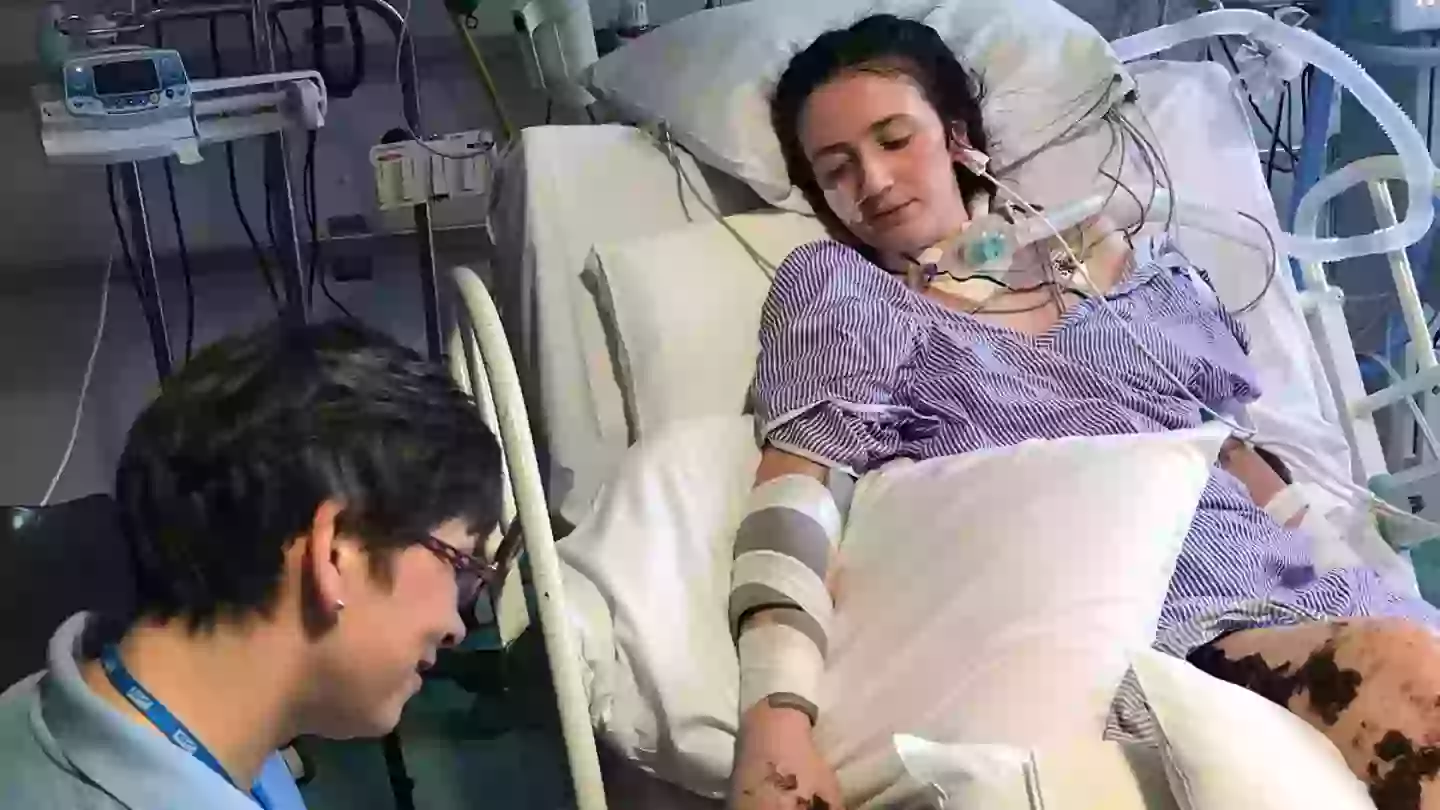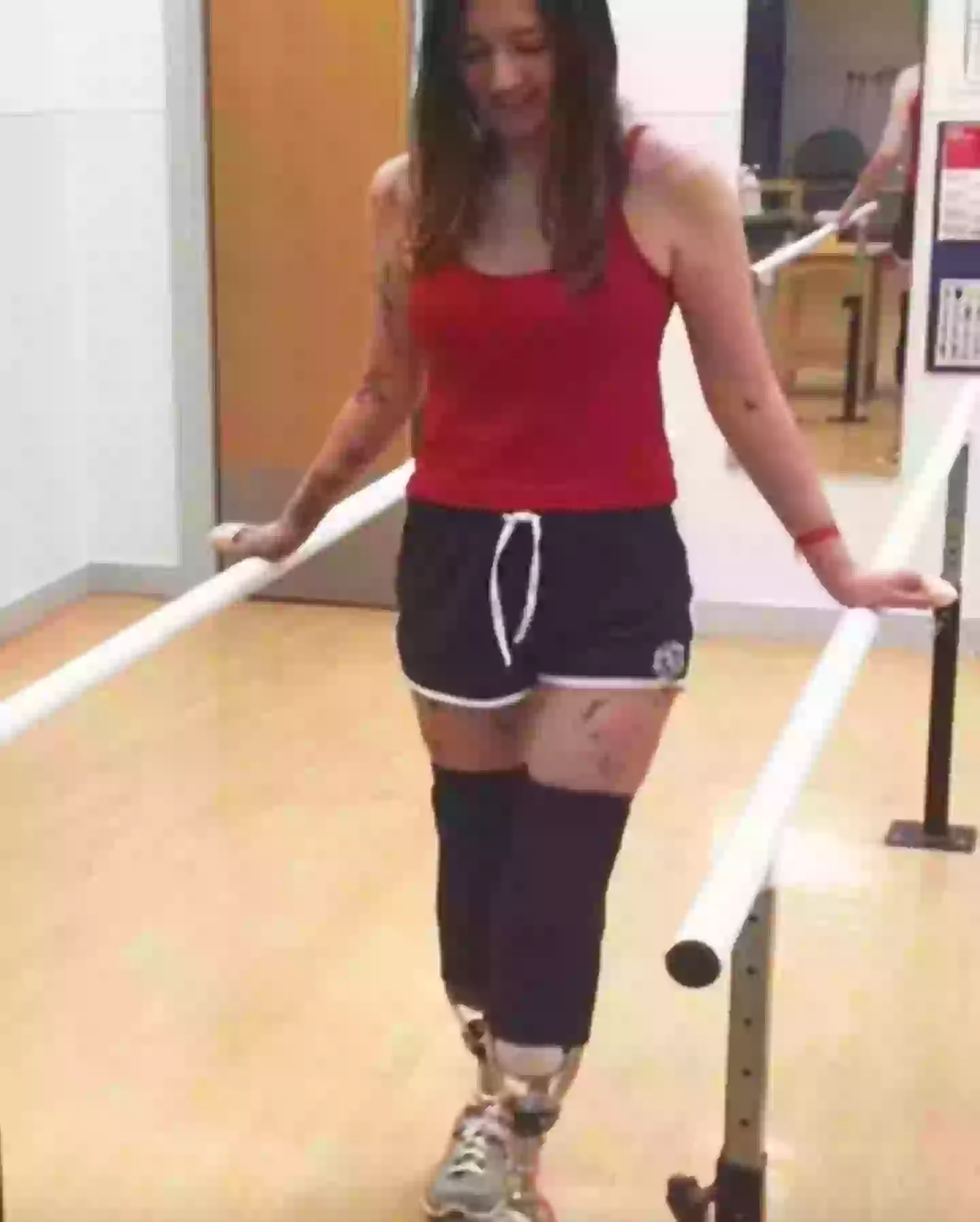
A university student has said her life has changed since undergoing the country’s ninth hand transplant after she contracted a deadly illness.
Becca Heritage was in her first year at the University of Southampton in 2018 and things were going well.
Recalling the 'freedom' of living independently and starting a new chapter in life, the British teen remembered the night it all went downhill.
'Within hours, I’d gone from healthy to hospitalised'
One weekend while a friend was visiting from home, Becca woke up in the middle of the night and started 'vomiting uncontrollably'.
Advert
Even more baffling was that they hadn't gone out for drinks that night either and she had gone to bed 'at a reasonable time'.

"We contacted NHS 111, who directed me to A&E," Becca explained in a blog post for the UK Health Security Agency (UKHSA).
Explaining that she was still 'vomiting relentlessly' by the early morning hours, she still didn't know what her condition was, though remembered becoming 'feverish, clammy and disoriented'.
"I vaguely recall getting up to go to the bathroom, but I’m told I collapsed and possibly had a seizure. Within hours, I’d gone from healthy to hospitalised," she said.
Advert
After being cooled by fans and ice, she was put into an induced coma for two weeks, as her parents were told by Monday that her condition had got worse and that she might die overnight as she had sepsis.
This is a serious condition when the body responds improperly to an infection, which can cause organs to work poorly.
Her family already said their goodbyes as her health continued to deteriorate, as scans showed that her brain started to swell because of meningitis.

What is meningitis?
Meningitis is an infection of membranes around the brain and spinal cord, and can be spread through sneezing, coughing and kissing, according to the NHS.
Advert
The MenACWY vaccine is offered to teenagers and young adults to protect against types of bacteria that can cause the life-threatening disease.
Becca would wake up disoriented two weeks later and notice that her hands and parts of her skin were black with 'the surface of a brick.'
Though Meningococcal group C (MenC) disease cases have decreased 99 percent since the vaccination programme was introduced in 1999, people are still fighting against the horrible disease.
'Like sitting in acid'
The next few weeks saw Becca in intensive care, as she recalled: "I underwent multiple surgeries, including the amputation of several fingers and the debridement of necrotic skin.
Advert
"My hands were bandaged, and I remember asking a nurse to draw on my godmother’s hand to show how much I had left. Seeing her hand covered in pen - the reality hit me," the now 25-year-old admitted.

By the end of 2018, the medical student was going through more 'skin grafts and surgeries', explaining 'the pain was excruciating'.
Becca added: "After one procedure, I screamed from the burning sensation, like sitting in acid.
"Small joys, like opening advent calendars with my mum and godmother in the middle of the night, became my lifeline."
Advert
After being given six hours on Christmas to spend time with family, Becca was in to get both of her legs amputated in January, as she turned her focus to rehabilitation.
"Monday to Friday, I was in the gym all day, learning to use my prosthetics and regaining strength.
"By the weekends, I was eager to go home and enjoy a sense of normality," Becca explained.
In just seven weeks, she was walking by herself with her prosthetics, and by 2020, she was back at university to restart her medicine degree.
After being on a hand transplant list, she was given good news in 2023 when a donor hand was made available.
The intricate procedure - which took place at Leeds General Infirmary - took a staggering 12 hours in total.
“The hand transplant was a huge step forward for me,” she said.
“It’s been absolutely amazing – I can now write with my right hand again and am continuing to gain sensation so I can feel warmth, cold and some textures.”
While the Meningitis Now volunteer plans to complete a Masters in Medical Science and become a doctor, she concluded her post by making one huge point.
"Meningitis is so easily preventable now with a vaccine. To any parents with young children or those eligible for the catch-up programme, I urge you to take this simple, life-saving step."